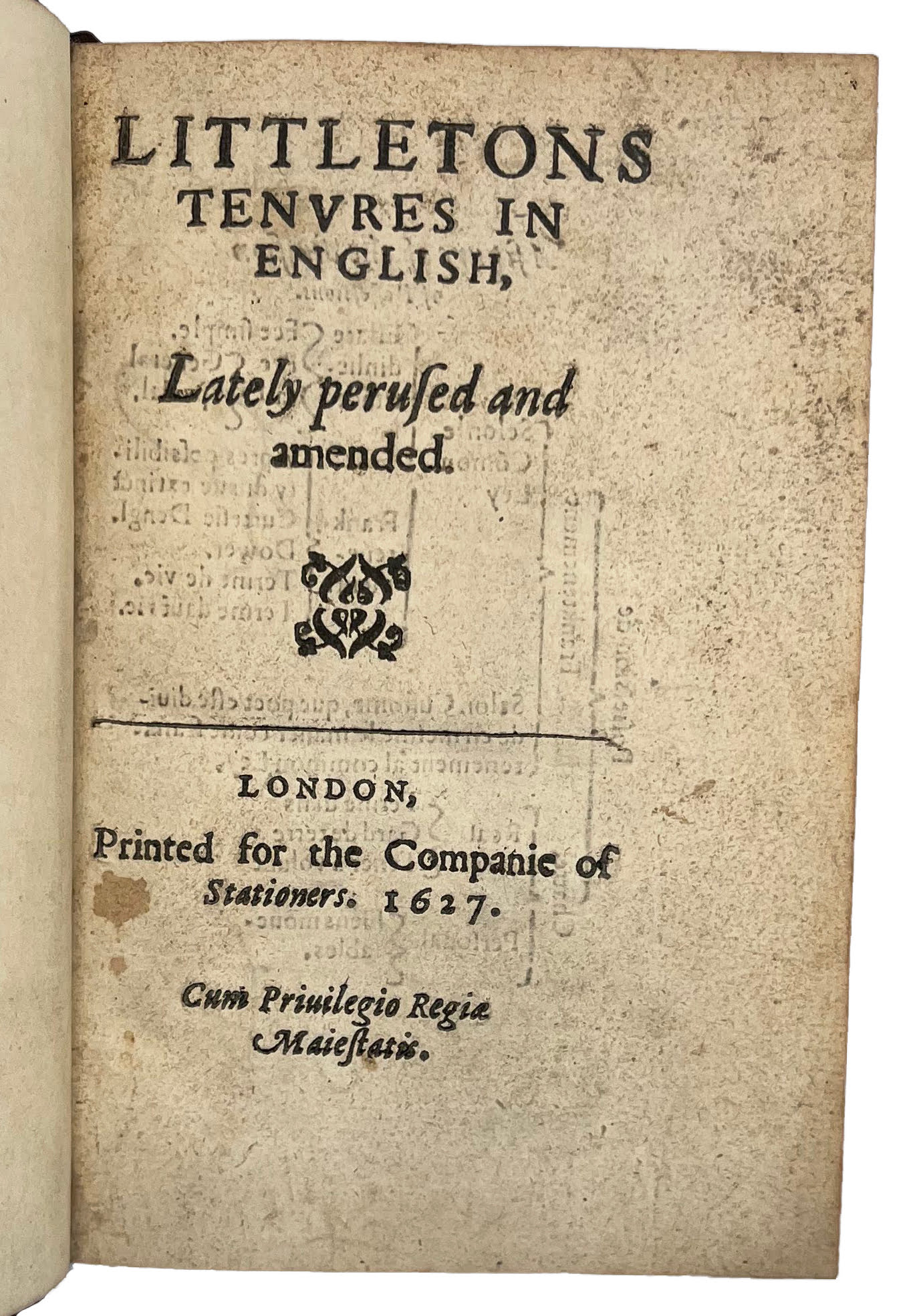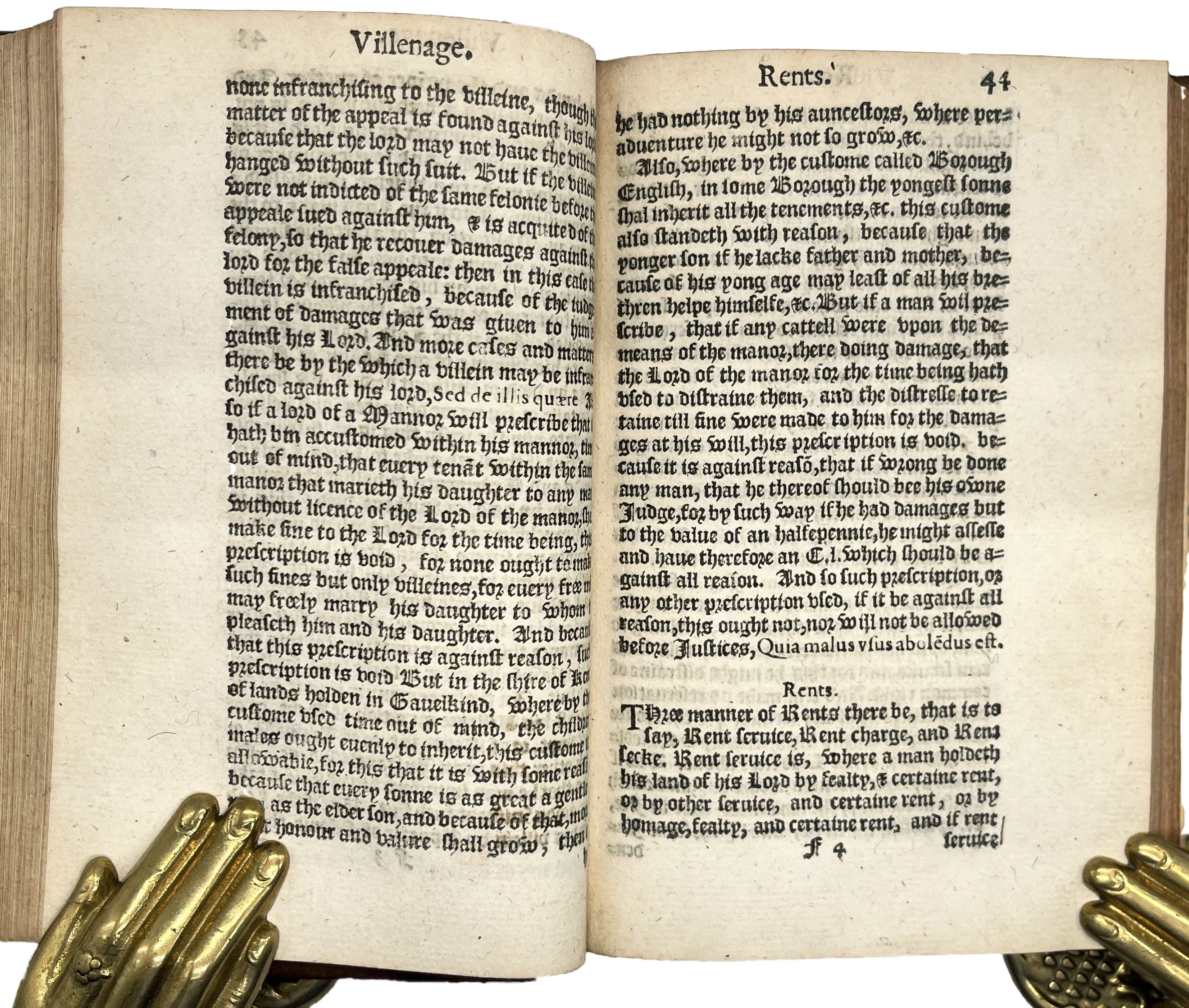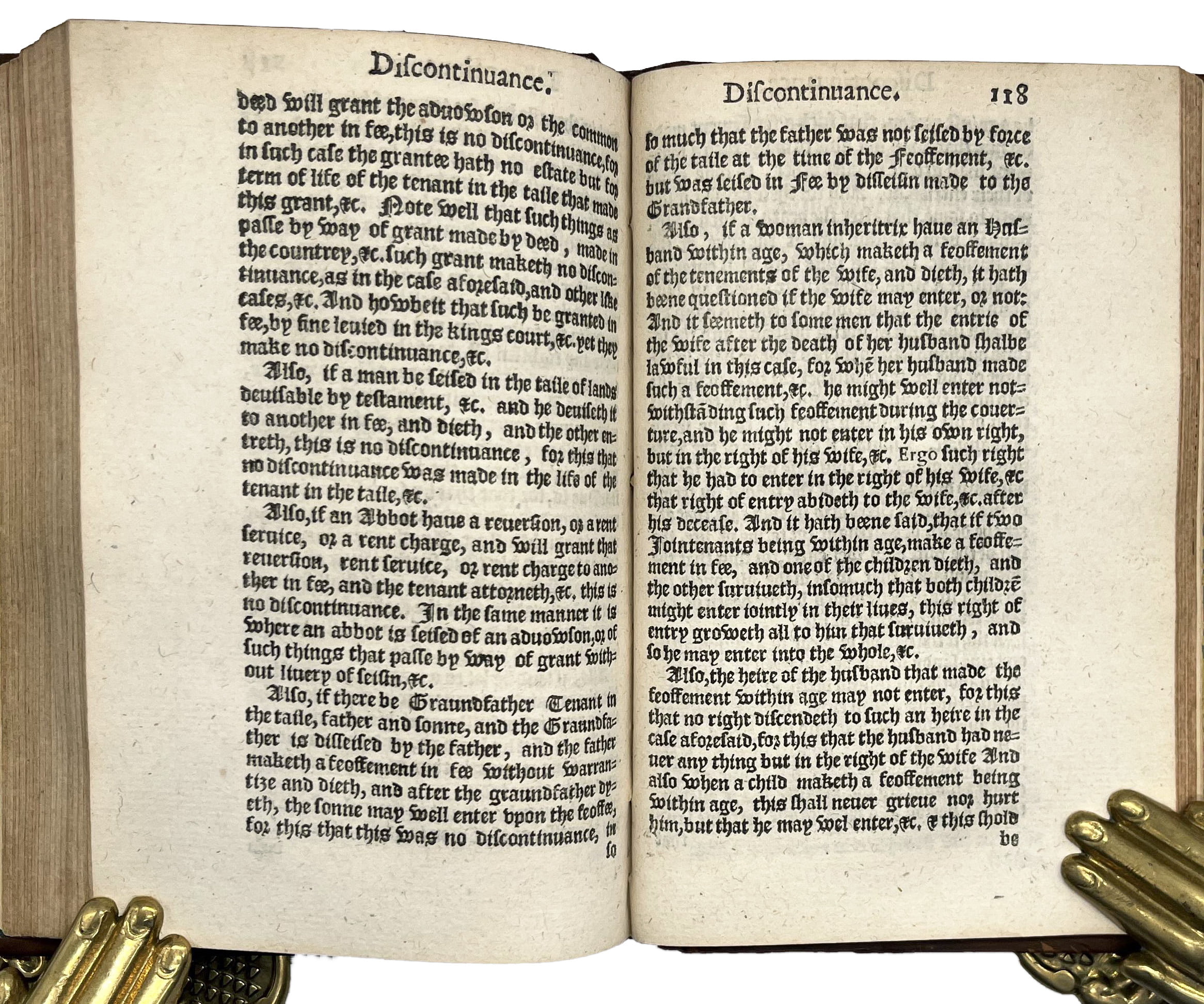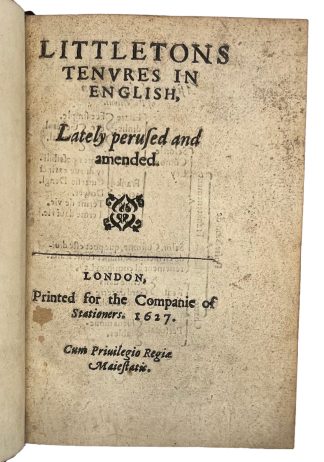LITTLETON, Thomas.
Littletons tenures in english.
London, printed [by Adam Islip?] for the Companie of Stationers, 1627.£950.00
8vo. ff. 142, [ii]: A-S⁸. Black letter, some Roman and Italic. Small typographical ornament on title, ‘Tho. P Cunliffe’ in C19th hand on fly, bookplate on pastedown, marginal notes to a few leaves. Light age yellowing, title slightly dusty. A very good copy, crisp and clean in early C19th calf, covers blind ruled to a panel design with large blind scroll in outer panel, spine tooled in blind, rebacked with original spine laid down, a little wear.
A slightly amended edition of the translation from the original ‘Law French’ into English of Thomas Littleton’s seminal treatise on tenures. “Sir Thomas Littleton, …, jurist, author of Littleton on Tenures, the first important English legal text neither written in Latin nor significantly influenced by Roman (civil) law. An edition (1481 or 1482?) by John Lettou and William de Machlinia was doubtless the first book on English law to be printed. It long remained the principal authority on English real property law, and in the 20th century Littleton’s work was still occasionally cited as authoritative. Throughout a turbulent period in English history, Littleton held several high offices: sheriff of Worcestershire; recorder of Coventry, Warwickshire; justice of assize (trial judge) on the Northern Circuit; and judge of the Court of Common Pleas (appointed by King Edward IV, 1466). In 1475 he was created a Knight of the Bath. Intended for the instruction of his second son, Richard, Littleton’s Treatise subtly differentiates various kinds of medieval English land tenure. It was written in law French, a specialised form of Anglo-Norman. Sir Edward Coke held Littleton’s work in high esteem and wrote an extensive commentary on it.” Encyclopaedia Britannica.
The work consolidated the law as it pertained to property, land, and especially of the law of trusts, also dealing with the subject of trespass. Henri de Bracton, his predecessor, had largely ignored this important topic. Unlike preceding writers on English law, Glanville, Bracton, and the authors of the treatises known by the names of Britton and Fleta, Littleton borrows nothing from the sources of Roman law or the commentators. He deals exclusively with English law. The book is written on a definite system, and is the first attempt at a scientific classification of rights over land. Littleton’s method is to begin with a definition, usually clearly and briefly expressed, of the class of rights with which he is dealing. He then proceeds to illustrate the various characteristics and incidents of the class by stating particular instances, some of which refer to decisions that had actually occurred, but more of which are hypothetical cases put by way of illustration of his principles. The first book deals with freehold estates, and Littleton adopts a classification that has been followed by all writers who have attempted to systematise the English law of land, especially Sir Matthew Hale and Sir William Blackstone. The second book relates to the reciprocal rights and duties of lord and tenant, It contains a complete statement of the law as it stood in Littleton’s time relating to homage, fealty, and escuage, the money compensation to be paid to the lord in lieu of military service to be rendered to the king. The third and concluding book of Littleton’s treatise deals mainly with the various ways in which rights over land can be acquired and terminated in the case of a single possessor or several possessors.
ESTC S108678. STC 15783.




